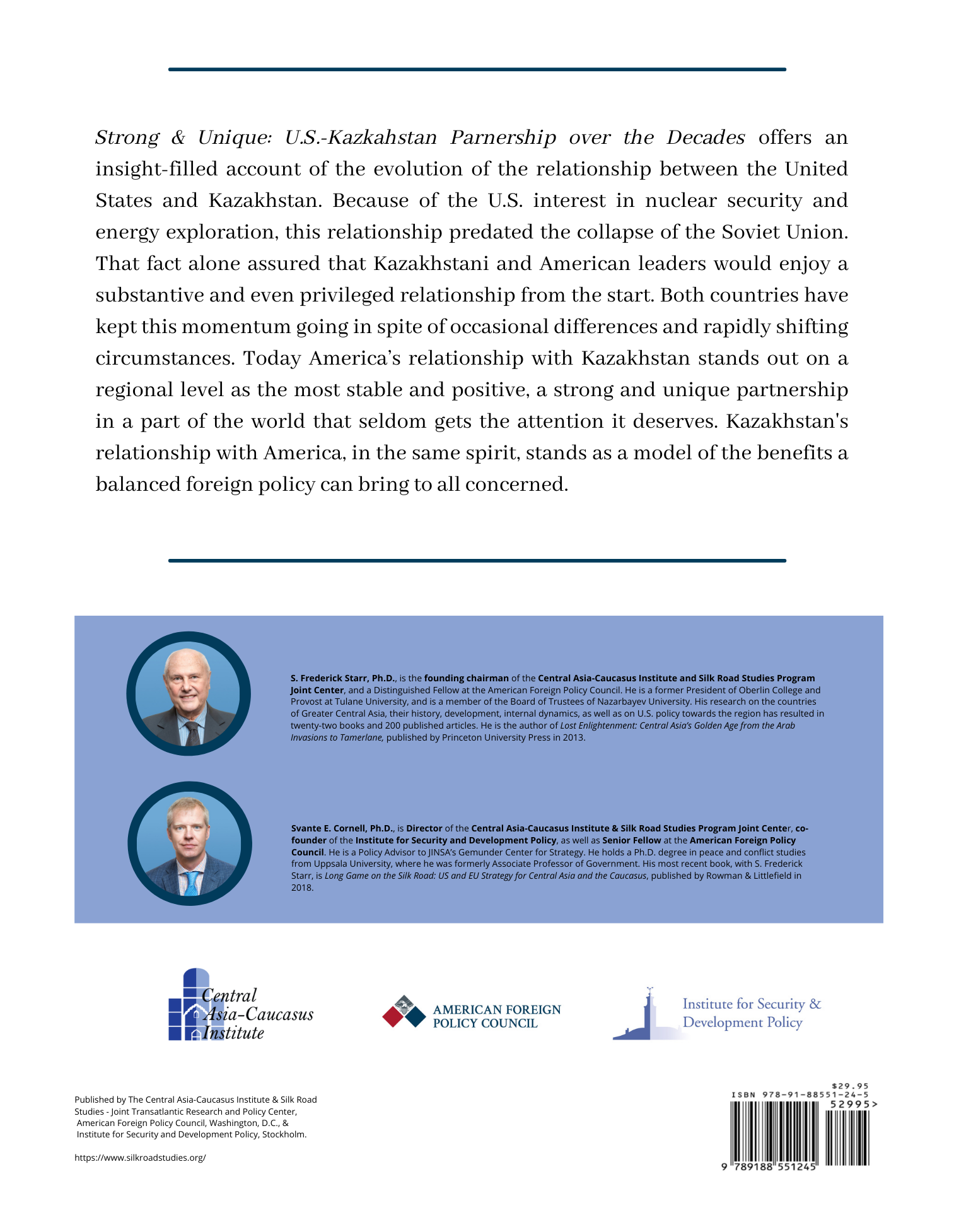CACI Webinar: The Growing Role of the S. Caucasus in European Energy Security
CACI Webinar: The Growing Role of the S. Caucasus in European Energy Security
Join our experts for a webinar discussing growing energy collaboration between the South Caucasus and Europe. They will provide a status update on growing supply of natural gas from Azerbaijan to several EU member countries, as well as on the prospect for energy transit from Central Asia and the potential for green energy supply by submarine power line under the Black Sea connecting Azerbaijan, Georgia, Romania and Hungary.
Panelists:
- Prof. Brenda Shaffer, U.S. Naval Postgraduate School
- Dr. Mamuka Tsereteli, Senior Fellow for Eurasia, Central Asia-Caucasus Institute at the American Foreign Policy Council
Moderator:
Dr. Svante Cornell, Director, Central Asia-Caucasus Institute at the American Foreign Policy Council
WHEN: Monday, March 6, 2023, 10:00-11:00 AM EST
Strong and Unique: Three Decades of U.S.-Kazakhstan Partnership
Strong and Unique: Three Decades of U.S.-Kazakhstan Partnership
By S. Frederick Starr and Svante E. Cornell
Prefaces by Amb. Erzhan Kazykhan and Richard Hoagland
Illustrations
Preface by Ambassador Erzhan Kazykhan
Preface by Ambassador Richard Hoagland
Chapter One: Dramatic Beginnings
Chapter Two: Accelerating Engagement
Chapter Three: Changing Priorities
Chapter Four: Embracing New Variables
Chapter Five: New Focus, New Grounding
Chapter Six: Kazakhstan and the United States: Achievements and Challenges
Appendices


Mamuka Tsereteli speaks at Helsinki Commission Briefing
WASHINGTON—The Commission on Security and Cooperation in Europe, also known as the Helsinki Commission, today announced the following briefing:
ENERGY (IN)SECURITY IN RUSSIA’S PERIPHERY
July 13, 2017
3:30 PM – 5:00 PM
Dirksen Senate Office Building
Room G11
Under Vladimir Putin, Russia has used its neighbors’ dependence on its energy supplies as a source of geopolitical leverage and sought to keep their energy sectors underdeveloped and corrupt. Ukraine has recently managed to implement crucial reforms in its energy sector, but challenges remain. Meanwhile, initiatives for similar reforms in Moldova have stalled, while Georgia has successfully reformed its energy sector and developed new infrastructure. Why are these outcomes so different and what more can be done to achieve energy security in post-Soviet Eastern Europe?
This briefing will provide a general overview of energy security in Ukraine, Moldova, and Georgia, and examine challenges and opportunities in the energy sectors of these states. Briefers will discuss the role that corruption plays in preventing the implementation of effective reforms as well as strategies to curb Russian influence.
The following experts are scheduled to participate:
- Peter Doran, Executive Vice President and Interim Director, Center for European Policy Analysis (CEPA)
- Edward Chow, Senior Fellow, Energy and National Security Program, Center for Strategic and International Studies (CSIS)
- Andrian Prokip, Senior Associate, Kennan Institute; Energy Expert, Institute for Social and Economic Research
- Lyndon Allin, Associate, Baker McKenzie
- Mamuka Tsereteli, Senior Fellow, Central Asia-Caucasus Institute

